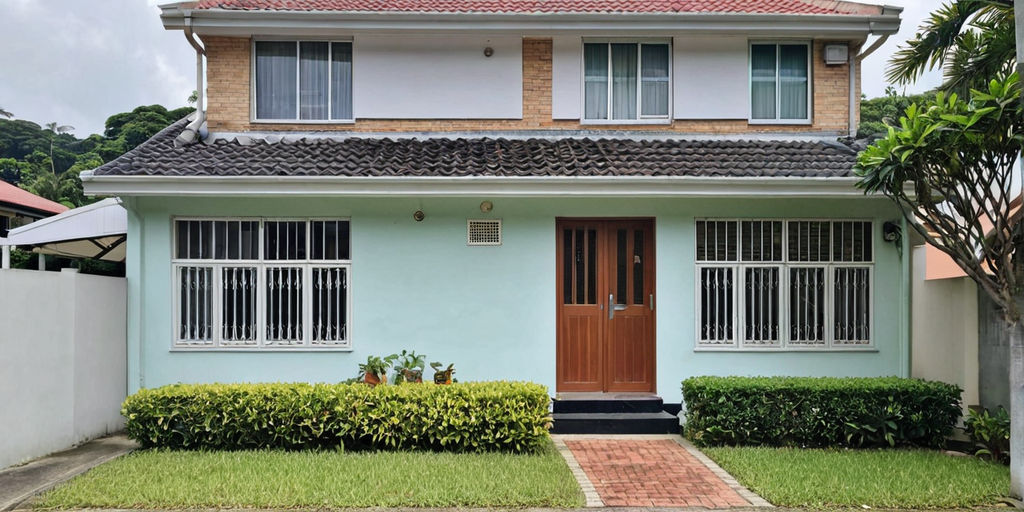
If you’re considering purchasing a property in Singapore, you might be wondering how much you can borrow for a home loan. Understanding your borrowing capacity is a crucial step in the homebuying process. It involves evaluating various factors such as your income, existing financial commitments, and the property’s value to determine the amount you can borrow from a lender.
When it comes to home loans in Singapore, your eligibility and borrowing capacity are influenced by several key factors, including your income, existing debt, credit history, and the loan-to-value ratio. Lenders will assess these aspects to determine the maximum amount they are willing to lend you. Additionally, understanding the basics of home loans, such as interest rates, loan tenure, and additional costs, is essential for making informed decisions when seeking financing for your property purchase.
Key Takeaways
- Assessing your borrowing capacity is crucial when considering a home loan in Singapore.
- Factors such as income, existing debt, and credit history play a significant role in determining your eligibility and borrowing limit.
- Understanding the basics of home loans, including interest rates and additional costs, is essential for making informed decisions during the homebuying process.
Understanding the Basics of Home Loans
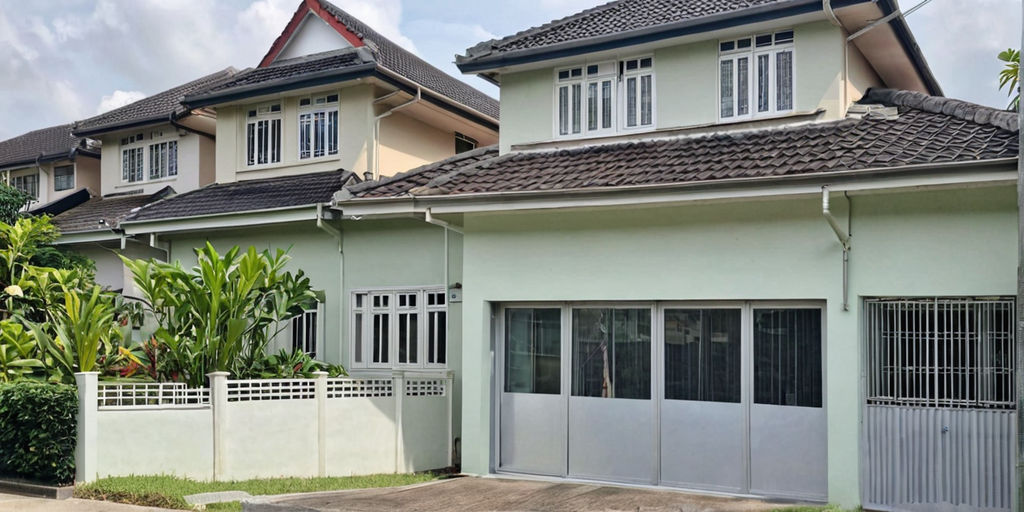
If you’re planning to purchase a property in Singapore, you’ll most likely need to take out a home loan. Home loans are a type of loan that allow you to borrow money to purchase a property, with the property serving as collateral. In this section, we’ll give you an overview of the basics of home loans in Singapore.
Types of Home Loans: HDB Loan vs Bank Loan
There are two main types of home loans in Singapore: HDB loans and bank loans. HDB loans are offered by the Housing & Development Board, while bank loans are offered by commercial banks and other financial institutions. HDB loans are only available for the purchase of HDB flats, while bank loans can be used to purchase both HDB flats and private properties.
HDB loans typically have lower interest rates and more flexible repayment terms compared to bank loans. However, they also have stricter eligibility criteria and lower loan amounts. Bank loans, on the other hand, offer higher loan amounts and more flexibility in terms of loan features and repayment options.
Loan-to-Value (LTV) Ratio Explained
The loan-to-value (LTV) ratio is a key factor that determines how much you can borrow for your home loan. The LTV ratio is the ratio of the loan amount to the property value or purchase price, expressed as a percentage.
In Singapore, the LTV ratio for bank loans is capped at 75% for HDB flats and 80% for private properties. This means that you’ll need to make a downpayment of at least 20% of the property value or purchase price. For HDB loans, the LTV ratio is capped at 90%, which means that you’ll only need to make a downpayment of 10%.
Your LTV ratio will also depend on your loan tenure, age, and creditworthiness. The longer your loan tenure, the lower your LTV ratio will be. If you’re over 65 years old, your LTV ratio may be lower as well. Your credit score and income will also affect the LTV ratio that you’re eligible for.
Eligibility and Borrowing Capacity
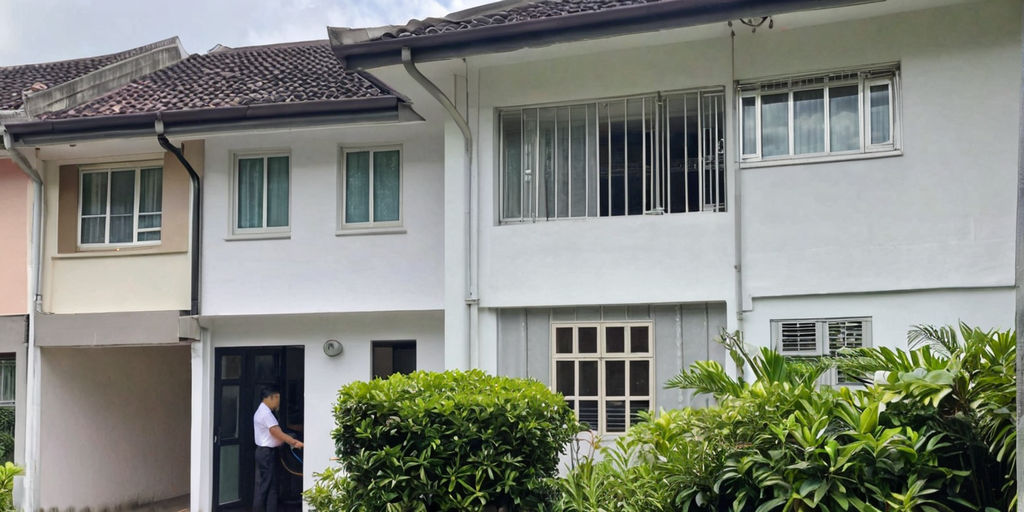
If you’re planning to take out a home loan in Singapore, it’s important to understand your eligibility and borrowing capacity. This section will provide you with an overview of the factors that affect your ability to borrow.
Assessing Your Financial Health: Income and Debt Obligations
Before you apply for a home loan, you should assess your financial health. This includes evaluating your income and debt obligations. Financial institutions will look at your gross monthly income and your debt obligations to determine your borrowing capacity.
Total Debt Servicing Ratio (TDSR) and Its Impact
The Total Debt Servicing Ratio (TDSR) is a measure of your financial health that takes into account all of your debt obligations. This includes personal loans, credit card debts, car loans, student loans, and other monthly debt repayments. The TDSR determines the maximum amount you can borrow for a home loan.
Mortgage Servicing Ratio (MSR) for HDB Flats
If you are purchasing an HDB flat, you will also need to consider the Mortgage Servicing Ratio (MSR). The MSR is the percentage of your gross monthly income that can be used to service your mortgage. For HDB flats, the MSR is capped at 30% of all borrowers’ gross monthly income.
To determine your eligibility and borrowing capacity, financial institutions will also consider your credit score, loan tenure, loan amount, and financial commitment. It’s important to keep in mind that your borrowing capacity is not just determined by your income, but also by your debt obligations and other financial commitments.
Calculating Your Home Loan
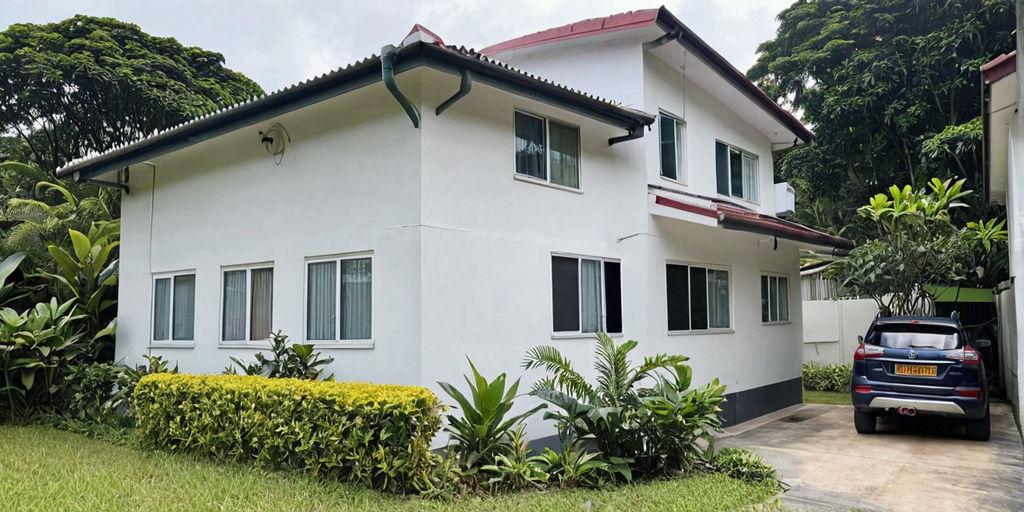
If you are planning to buy a property in Singapore, you may have to take out a home loan. However, before you apply for a home loan, it is important to determine the loan amount you can afford. There are several factors that can affect your loan eligibility, including your income, property value, loan tenure, and loan-to-value (LTV) limit. In this section, we will discuss how to calculate your home loan, including the role of CPF Ordinary Account in financing and using home loan calculators to estimate repayments.
How to Determine the Loan Amount You Can Afford
To determine the loan amount you can afford, you need to consider your income, expenses, and debt obligations. You can use a debt-to-income (DTI) ratio to determine how much of your income is being used to pay off debt. Generally, lenders prefer a DTI ratio of 40% or less. You can also use a mortgage payment calculator to estimate your monthly mortgage payment based on your loan amount, interest rate, and loan tenure.
The Role of CPF Ordinary Account in Financing
If you are a Singaporean or Permanent Resident, you can use your CPF Ordinary Account to finance your home purchase. The CPF Ordinary Account can be used to pay for the downpayment, monthly mortgage payments, and other related costs. However, there are limits to how much you can withdraw from your CPF Ordinary Account for your home purchase. You can check your CPF Ordinary Account balance and withdrawal limit on the CPF website.
Using Home Loan Calculators to Estimate Repayments
Home loan calculators can be a useful tool to estimate your monthly mortgage repayments. You can use a mortgage calculator to estimate your loan amount, interest rate, and loan tenure. This can help you determine how much you can afford to borrow and how much your monthly repayments will be. You can also use a TDSR calculator to determine your Total Debt Servicing Ratio (TDSR), which is the percentage of your income that is used to pay off debt.
Interest Rates and Loan Tenure
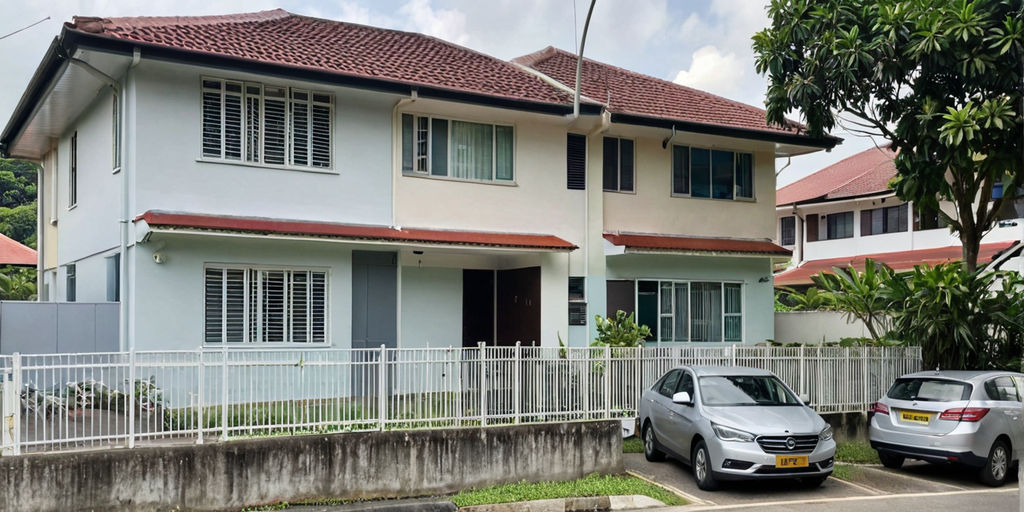
When it comes to securing a home loan in Singapore, understanding the different interest rate options is crucial. You have the choice between fixed and floating interest rates. A fixed interest rate provides stability and predictability, as your interest rate remains constant for a specific period, usually between 1 to 5 years. On the other hand, a floating interest rate fluctuates with the market, potentially offering lower rates initially, but subject to change over the loan tenure.
Fixed vs Floating Interest Rate Options
With a fixed interest rate, you can accurately plan your finances, knowing your monthly repayments won’t change during the fixed period. However, if market rates decrease, you may miss out on potential savings. On the flip side, a floating interest rate can offer lower initial rates, but your repayments can fluctuate, making it harder to budget.
Choosing the Right Loan Tenure for Your Needs
Loan tenure plays a significant role in determining your monthly repayments and overall interest cost. It’s essential to consider your age, income stability, and financial plans when deciding on the loan tenure. While a longer tenure reduces your monthly repayment, it may result in higher overall interest payments. Conversely, a shorter tenure means higher monthly repayments but lower overall interest costs. Additionally, consider early repayment fees, as they can impact your decision if you plan to settle your loan before the tenure ends.
Additional Costs and Considerations
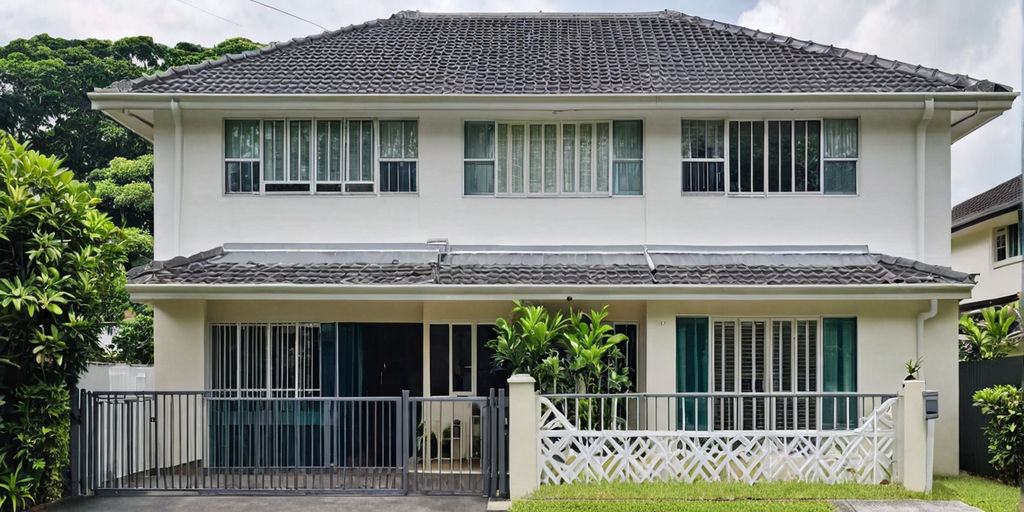
When it comes to buying a home in Singapore, it’s not just the price of the property that you need to consider. There are several additional costs and ongoing expenses that you need to take into account before you make your purchase. In this section, we’ll go over some of the most important costs and considerations that you need to keep in mind.
Understanding Stamp Duty and Other Upfront Costs
One of the most significant upfront costs that you’ll need to pay when buying a home in Singapore is Stamp Duty. This is a tax that is levied on all property purchases in Singapore, and the amount that you’ll need to pay will depend on the purchase price of the property. You can use the Stamp Duty Calculator to get an estimate of how much you’ll need to pay.
In addition to Stamp Duty, there are several other upfront costs that you’ll need to budget for. These include the downpayment, legal fees, and other miscellaneous fees. The downpayment is typically 20% of the purchase price of the property, although this can vary depending on the financial institution that you’re borrowing from.
The Importance of Mortgage Insurance
When you take out a home loan in Singapore, it’s essential to have mortgage insurance. This insurance will protect you and your family in the event that you’re unable to make your mortgage payments due to illness, injury, or death. There are several different types of mortgage insurance available in Singapore, so it’s essential to do your research and find the one that’s right for you.
Maintenance and Other Ongoing Costs
Once you’ve purchased your home, there are several ongoing costs that you’ll need to budget for. These include maintenance costs, property taxes, and home insurance. Maintenance costs can include things like repairs, renovations, and regular upkeep. Property taxes are calculated based on the annual value of your property, and the rate varies depending on whether you’re a citizen or a foreigner. Finally, home insurance is essential to protect your property and your belongings from damage or theft.
The Property Market in Singapore
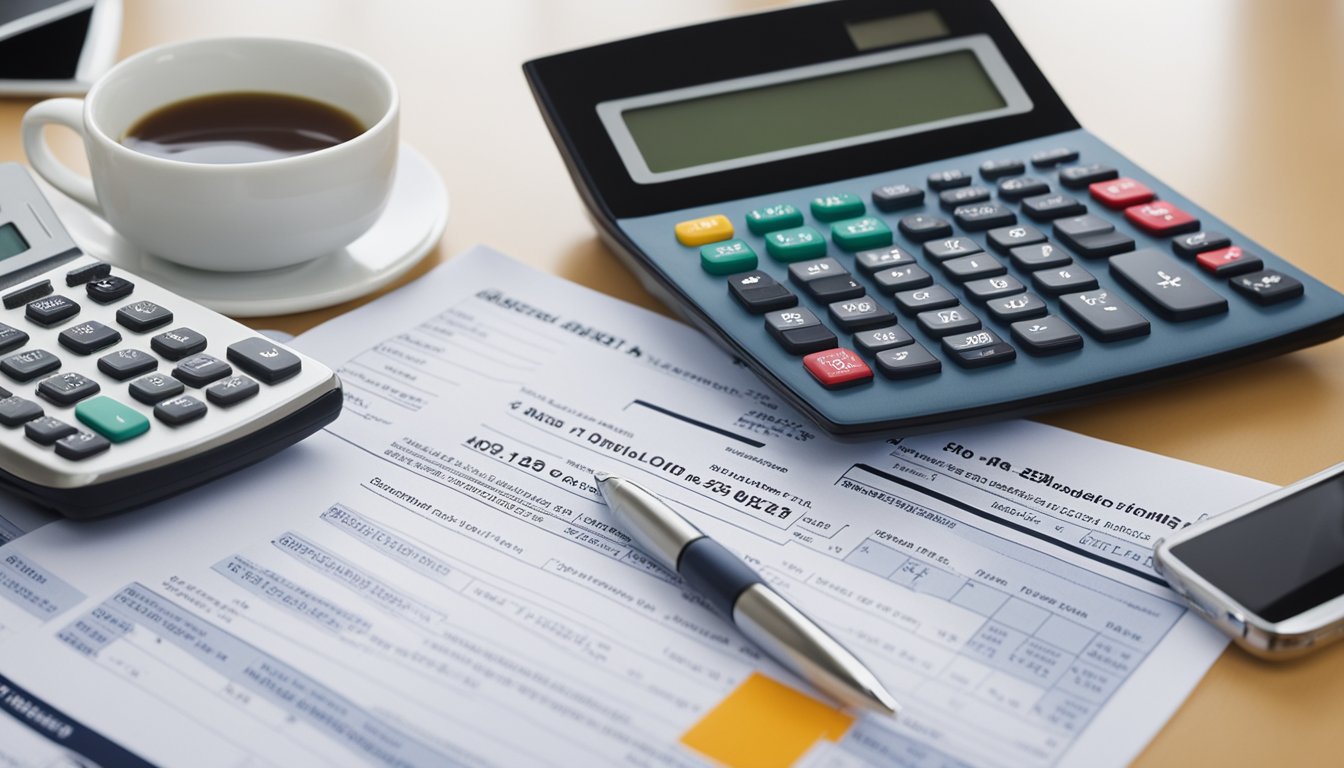
How Property Market Trends Affect Borrowing
The property market in Singapore is dynamic and can significantly impact your borrowing capacity for a home loan. Property’s value is a crucial factor as it directly influences the amount you can borrow. Understanding property market trends and fluctuations is essential as it can affect the loan-to-value (LTV) ratio and, in turn, the amount you can secure for your home loan. Keeping a close eye on property value trends can help you make informed decisions about your borrowing needs.
Regulations and Restrictions to Be Aware Of
Regulations set by the Monetary Authority of Singapore (MAS) play a pivotal role in governing the borrowing process. The LTV ratio, determined by the property’s value, is subject to MAS regulations, impacting the maximum loan amount you can secure. Additionally, factors such as the remaining lease on the property, eligibility for executive condominiums, and HDB concessionary loans are essential considerations when navigating the borrowing landscape in Singapore. Being aware of these regulations and restrictions is crucial to successfully securing a home loan that aligns with your needs and financial situation.
Refinancing Your Home Loan
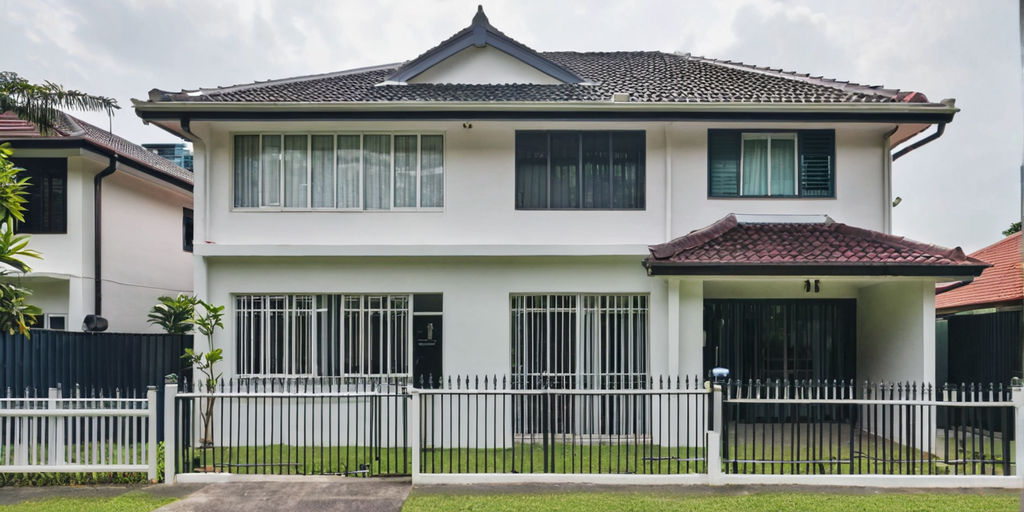
Refinancing your home loan is a great way to save money on your mortgage payments. It involves taking out a new loan to pay off your outstanding home loans. This new loan typically has a lower interest rate, which can help you save money on your monthly mortgage payments.
When to Consider Refinancing
You should consider refinancing your home loan if you want to save money on your mortgage payments. This is especially true if interest rates have fallen since you took out your original loan. Refinancing can also be a good option if you have outstanding loans that you want to consolidate into a single loan.
Calculating the Benefits of Refinancing
Before you refinance your home loan, you should calculate the potential benefits. This involves comparing your current loan with the new loan to see how much you can save. You should consider the following factors:
- Outstanding loans: If you have outstanding loans, you should add them to the new loan to calculate your total loan amount.
- Interest rates: You should compare the interest rates of your current loan and the new loan to see how much you can save on interest payments.
- Mortgage payments: You should calculate your new mortgage payments to see how much you can save each month.
- Net proceeds: You should calculate the net proceeds of the new loan to see how much money you will receive after paying off your outstanding loans.
By considering these factors, you can determine whether refinancing your home loan is a good option for you.
Homeownership Journey
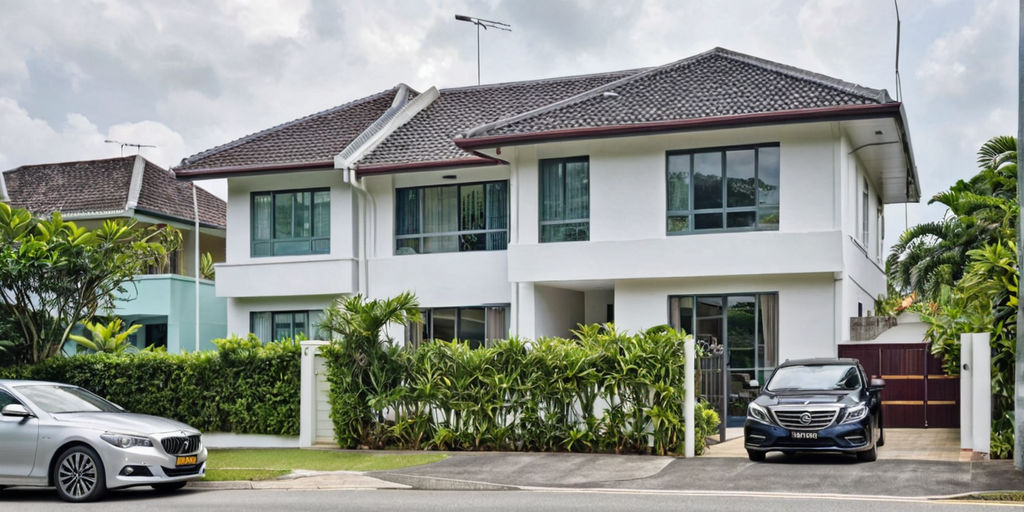
Becoming a homeowner is an exciting journey. It is a significant milestone in your life, and it comes with a lot of responsibilities. Owning a home is a long-term investment, and it requires careful planning and consideration. In this section, we will guide you through the steps to acquiring your dream home and navigating loan applications and approvals.
Steps to Acquiring Your Dream Home
The first step in acquiring your dream home is to determine your eligibility requirements and the loan amount you can borrow. Financial institutions in Singapore have different eligibility requirements, and they consider several factors before approving a loan. These factors include your credit history, income, and property value.
Once you have determined your eligibility requirements and the loan amount you can borrow, the next step is to find the right property. You can start by browsing online property listings or engaging a property agent. It is essential to consider factors such as location, amenities, and future development plans when choosing a property.
After finding the right property, you should engage a lawyer to handle the legal aspects of the purchase. The lawyer will help you with tasks such as verifying the property’s ownership and preparing the sale and purchase agreement.
Navigating Loan Applications and Approvals
Navigating loan applications and approvals can be overwhelming, but it doesn’t have to be. You can start by comparing the loan packages offered by different financial institutions. You should consider factors such as interest rates, loan tenures, and processing fees when comparing loan packages.
Once you have chosen a loan package, you can submit your loan application to the financial institution. The financial institution will review your application and assess your eligibility for the loan. They may also require additional documents such as income tax statements and proof of income.
If your loan application is approved, the financial institution will issue a letter of offer. The letter of offer will contain details such as the loan amount, interest rate, and loan tenure. You should review the letter of offer carefully and seek legal advice if necessary before accepting it.
Conclusion
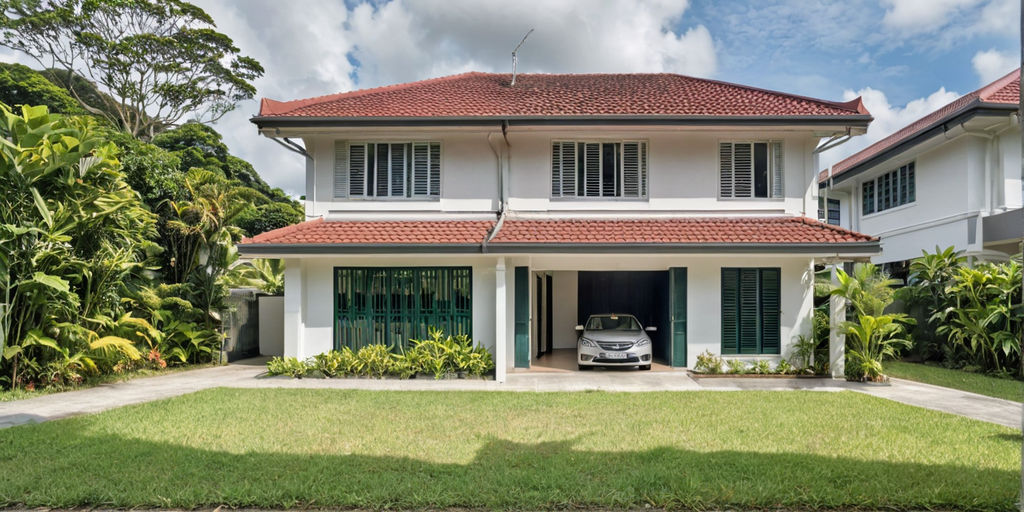
Congratulations! You are now equipped with the knowledge to determine how much you can borrow for a home loan in Singapore. By understanding the factors that affect your borrowing capacity, you can make informed decisions about your financial planning and home buying journey.
Remember, the amount you can borrow will depend on various factors such as your income, age, credit score, and loan tenure. It is important to be realistic about what you can afford and not overextend yourself financially.
As exciting as it may be to purchase your dream home, it is crucial to approach the process with a level head and careful consideration. Take the time to research and compare different home loan options and consult with a financial advisor if needed.
At the end of the day, a home loan is a significant financial commitment that requires responsible planning and management. With the right approach, you can achieve your homeownership goals while maintaining financial stability and security.
Frequently Asked Questions
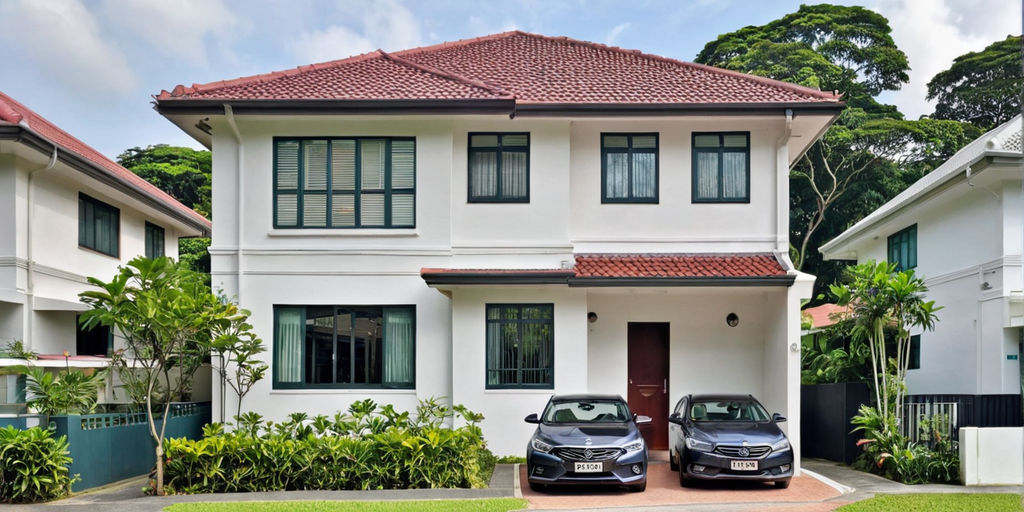
What’s the highest sum I might snag for a swanky private pad in Singapore?
If you’re looking to buy a luxurious private property in Singapore, the loan amount you can borrow will depend on several factors. The maximum loan-to-value (LTV) ratio for bank loans is 75%, which means you’ll need to pay a 25% down payment. However, the actual loan amount you can borrow will depend on your creditworthiness, income, and other factors.
Curious about the max moolah you can muster from a bank for a mortgage?
Banks in Singapore typically offer home loans of up to 75% of the property value or purchase price, whichever is lower. However, the actual loan amount you can borrow will depend on your financial situation, credit score, and other factors. It’s always a good idea to shop around and compare offers from different banks to find the best deal.
Ever wondered how the TDSR could shape your borrowing bonanza for a home?
The Total Debt Servicing Ratio (TDSR) is a measure of your ability to service your debts. It takes into account all your monthly debt obligations, including credit card bills, car loans, and other loans. The TDSR limit is 60%, which means your total monthly debt payments cannot exceed 60% of your monthly income. This can impact the amount you can borrow for a home loan.
What’s the skinniest slice of cash you can secure for a Singaporean home loan?
The minimum loan amount you can borrow for a home loan in Singapore is typically around S$100,000. However, the actual minimum loan amount will depend on the bank or financial institution you’re applying to, as well as your financial situation and creditworthiness.
Fancy figuring out your borrowing capacity for an HDB flat, eh?
The maximum loan-to-value (LTV) ratio for HDB loans is 90%, which means you’ll only need to pay a 10% down payment. However, the actual loan amount you can borrow will depend on your creditworthiness, income, and other factors. You can use a TDSR calculator to estimate your borrowing capacity for an HDB flat.
Just how generous can banks be when backing your Singapore property dreams?
Banks in Singapore can be quite generous when it comes to backing your property dreams. They typically offer home loans of up to 75% of the property value or purchase price, whichever is lower. However, the actual loan amount you can borrow will depend on your financial situation, credit score, and other factors. It’s always a good idea to shop around and compare offers from different banks to find the best deal.

